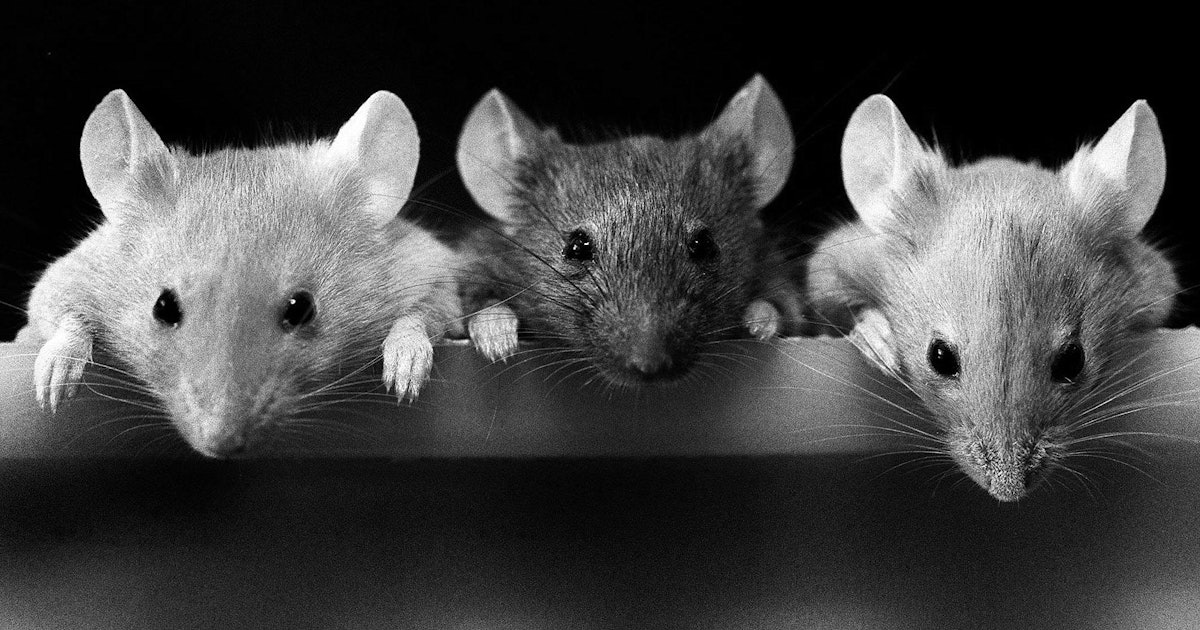
If you dig into Freudian psychology, you can probably scrape together a more or less convincing reason why male mice cower at the sight of a banana. Fortunately, nobody needs to do that because behavioral psychologists at McGill University have identified the chemical science behind this phenomenon.
Clearly, bananas are not a natural predator of mice. So why do they fear them? It turns out, the fruit’s odor originates from a compound called n-pentyl acetate. And that same compound is also found in the urine of pregnant or lactating mice.
The finding was somewhat of an accident. The paper’s first author, Sarah Rosen, had been investigating pain in pregnant mice when a colleague remarked that the male mice were acting strange. Rosen tells Inverse that the rodents seemed “aggressive” and had “super-high pain thresholds.”
To figure out what was causing this uncharacteristic behavior, they tested a few theories. They placed the males before pregnant mice, but that did nothing; neither did offering the males soiled bedding from virgin female mice. Finally, they paired male mice with soiled bedding from pregnant mice, and the males’ aggressive behavior spiked. So what was in the bedding that was triggering the mice’s odd behavior?
The team turned to the pregnant mice’s urine, which the bedding would reek with. They identified compounds specific to the urine of pregnant and lactating mice — n-pentyl acetate among them — and then isolated and tested those compounds on male mice. “N-pentyl acetate was the one that had the biggest effect in the males,” Rosen says, “and that also happened to smell like bananas.”
Indeed, Rosen’s team found that these male mice who had sniffed the n-pentyl acetate had higher levels of the stress hormone cortisol, which was in line with their defensive behavior. It also decreases their pain threshold, which indicates that if the mice needed to fight, pain would feel minimal.
The team looked at the effects of the isolated compound on male mice, as well as on banana oil. While in the lab, Rosen even tested microwaved frozen bananas on the mice, though she’s not sure if her succeeding postdoc continued looking at what happens when you drop a banana into a male mouse’s home. “The fact that it got this far was super surprising in that the banana oil itself could elicit this response,” Rosen says.
The researchers published their work last week in the journal Science Advances. Rosen initially conducted this research at McGill University as part of her Ph.D. She is now a postdoctoral researcher at Washington University in St. Louis.
Finding this stress response and banana-phobia was a bonus to Rosen’s initial work. She says that researchers didn’t know male mice necessarily had a stress response to mouse mothers. The reason, her team believes, is that male mice evolved this response to the scent so they don’t accidentally invade a mouse mom’s nest, which would likely get them attacked by the protective mother.
It’s funny to think of a mouse cowering near a banana, but Rosen sees the bigger implications of this finding. “People do behavioral tests all the time and don’t really think about how these small environmental changes might have huge effects on their experimental outcomes — especially something so simple,” she says.